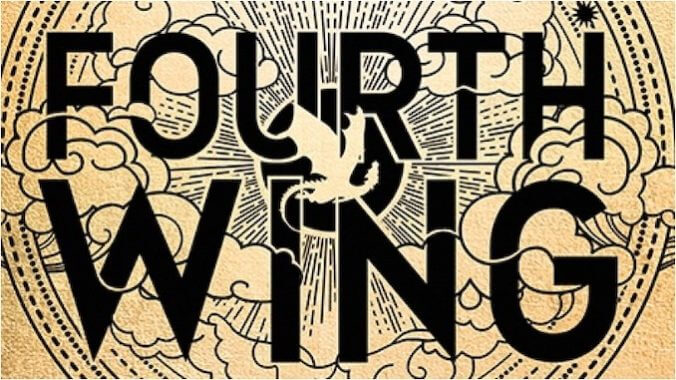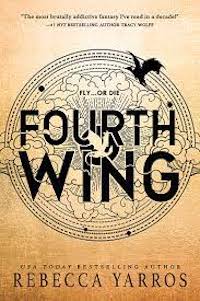Making the Familiar New In Rebecca Yarros’s Fourth Wing

Rebecca Yarros’s Fourth Wing has a lot of “new” qualifiers: it’s a new book in a brand new series. It’s in the new adult category, and it’s the first book of a new imprint of romantic fantasy: Entangled Publishing’s new Red Tower Books. But with all that’s new about the book, what’s most impressive is how Yarros takes familiar tropes and themes and presents them so well that the book is hard to put down. If you haven’t picked it up yet, get ready for some late nights reading past bedtime—this one just keeps drawing you on for one more chapter.
As the book opens, readers meet Violet Sorrengail, the youngest daughter of General Sorrengail, one of the leading officers in Navarre’s military. The medieval-feeling kingdom Navarre has been at war for years. The borders are threatened by neighboring Poromiel’s griffin riders, which are only held at bay due to the wards set on Navarre’s borders. The warriors responsible for maintaining those wards, and defending the kingdom are the dragon riders—a group to which Violet has never aspired to belong. But instead of following her calling to the Scribe Quadrant, like her now-dead father, Violet has been told by her imposing mother that she will become a dragon rider or die trying.

This is not a lightly made joke, either. Those who want to become dragon riders have to cross a dangerous parapet even to be admitted, and many don’t make it over. The training for new cadets is brutal, and many more die before they ever get a chance to find a dragon to bond with. Dragons themselves are picky, and even more cadets are killed by the dragons themselves, if the dragons find a candidate unworthy. It’s dangerous, and no one thinks Violet can survive it: not her older sister, Mira, already a rider herself, and not her best friend, Dain, who is now a squad leader. Violet has been considered too fragile for such a profession. But after her father’s death, her mother decides: it’s dragons or nothing.
Violet’s frail health is one of the interesting angles that Yarros plays with in the novel. She’s not weak (though she’s not yet physically strong as the book begins), but she has joints and ligaments that don’t seem to want to stay in place. (Modern readers might think her condition sounds somewhat similar to Ehlers Danlos Syndrome, a condition that creates hypermobility and flexibility, but comes with problems like chronic pain, frequent joint dislocations, and easy bruising. It would be interesting to read a review from someone with that condition or similar, to see if Violet’s experiences in a harsh physical environment are well presented.)
At the beginning, Violet also considers herself fragile—but as she overcomes challenge after challenge within the Riders’ Quadrant, frequently solving problems her own way rather than by a more traditional path, she begins to realize that those who have coddled her are holding her back. She makes her own friends and allegiances and gains her own confidence until she realizes that the woman she is now wouldn’t be happy escaping to the Scribes’ Quadrant. She’s not the same person she was before she crossed the parapet.
Because Fourth Wing’s narrative tightly sticks to Violet’s first-person perspective, Yarros finds inventive ways to give readers information about the world. As a trained scholar, Violet knows a lot about her country, and when she gets nervous, she recites facts. It’s a great play in that it gets readers into Violet’s head—this is how she distracts herself from her fears—as well as giving world-building information without feeling like an info dump.
-

-

-

-

-

-

-

-

-

-

-

-

-

-

-

-

-

-

-

-

-

-

-

-

-

-

-

-

-

-

-

-

-

-

-

-

-

-

-

-








































